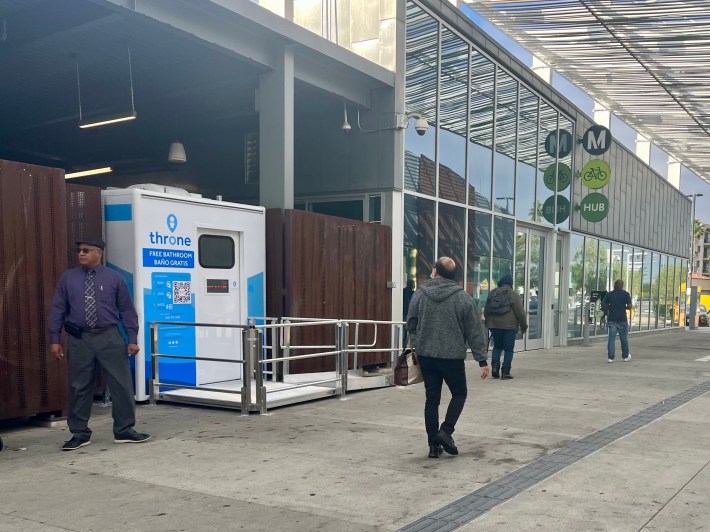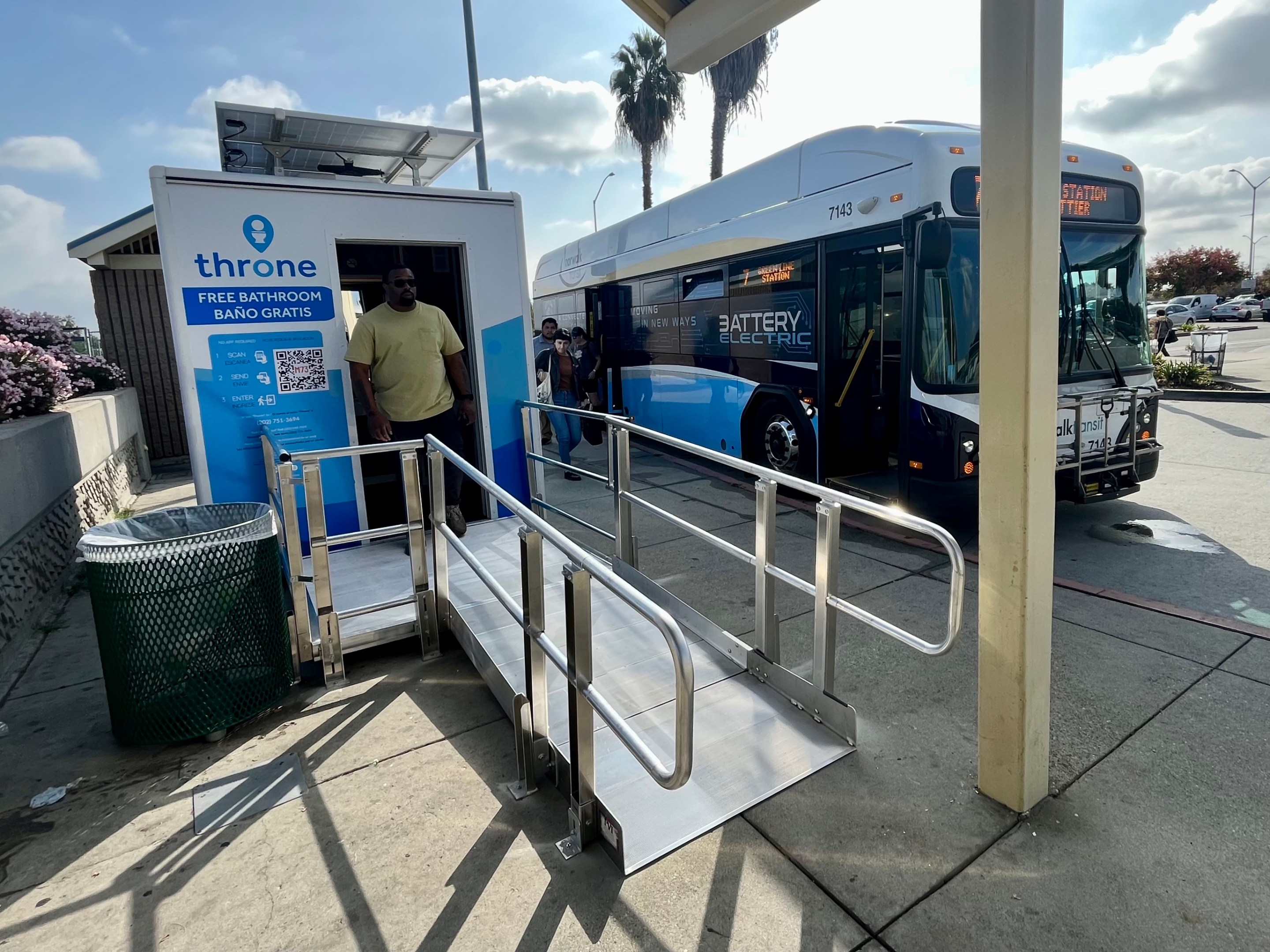For decades, American transit agencies have treated bathroom access as an unsolvable problem. But as agencies push to increase ridership and improve the transit experience, innovative solutions to our bathroom access crisis are emerging from an unexpected place: the transit sector itself.
The transformation is already visible in Los Angeles, where LA Metro's smart bathroom pilot program has served over 100,000 bathroom visits in its first year. The impact extends beyond mere convenience; stations with these facilities have seen a 50 percent reduction in public defecation incidents and significant improvements in cleanliness ratings.

The facilities have been particularly meaningful for riders with medical conditions like IBS, who previously struggled to use public transit at all. Other riders report that reliable bathroom access has made long commutes more manageable, especially for those traveling hours each day on the system.
Transit agencies are recognizing that bathroom access isn't just about comfort — it's about making public transportation a viable option for everyone. When agencies like Caltrain announced efforts to provide restrooms, they acknowledged that lack of facilities can be a dealbreaker for parents with young children, elderly riders, and people with medical conditions debating between driving or hopping on a train.
Other agencies, such as AC Transit, are using similar technology-enabled solutions to provide their workforce with clean, controlled-access facilities without the enormous expense and complexity of permanent construction.
The data is compelling: one in six workers has left a job due to poor restroom access. For transit operators, the impact is even more direct — studies show elevated rates of urinary tract infections among drivers who can't access bathrooms during their routes and impacted job satisfaction. When LA Metro introduced better bathrooms, 95 percent of operators reported being “happier at work” due to the elevated facilities.

Modern technology is opening new possibilities for addressing these challenges. Smart access controls, real-time monitoring, and data-driven maintenance are making it possible to provide clean, safe facilities at a fraction of the cost of traditional infrastructure. More importantly, they're showing that the "unsolvable" problem of public bathrooms might have a solution after all.
As transit agencies work to rebuild ridership and improve workforce retention, addressing basic human needs isn't just the right thing to do — it's smart business. Clean, accessible bathrooms send a powerful message: public transit is for everyone.
Editor's note: Op-eds are not necessarily endorsements and do not necessarily reflect the views of Streetsblog USA. Have a different perspective on this issue or the solutions to confront it? Submit one of your own.






